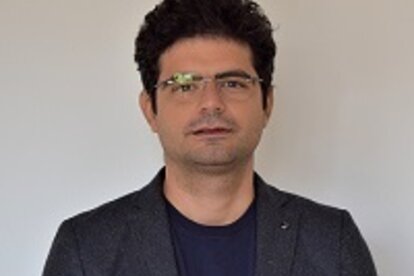With the slow and cautious emergence of many countries from confinement, most efforts are now placed on the discovery of a vaccine for the COVID-19 pandemic. In the meantime, governments and other stakeholders are intensifying solutions for the economic and social impacts of the pandemic. In all these, it’s easy to lose sight of the fact that niches like medicinal and aromatic plants are an important source of economic resilience for women and other disadvantaged groups.
*******
Health and wealth. Two important parts of life. While not ignoring the importance of medicinal and aromatic plants as rich resources of ingredients in drug development, our focus in this blog is on the economic link.
Pandemics like COVID-19 affect women and other disadvantaged groups differently. Existing inequalities for women and other social groups get worse. They are typically hired into low-skilled, low-productivity positions, often in the informal economy.
Also, mainly women are disproportionately carrying out the burden of the care economy – taking care of ill family members and the elderly. The closure of schools and limited mobility further aggravates the burden of unpaid care work on women. In the wake of emergencies like COVID-19, households come under increased strain and financial difficulties, reasons known to increase the risk of domestic violence.
The COVID-19 pandemic is a global crisis, but its economic impacts are deeply local. Medicinal and aromatic plants offer an important source of income and jobs for women and other disadvantaged groups who are disproportionately affected by the pandemic.
But, how?
Enduring inequalities & disrupted livelihoods
In Albania, for example, the unemployed, low skilled, internal migrants, rural and peri-urban youth are mostly women and people from other disadvantaged groups. From our research in the RisiAlbania project of the Swiss Agency for Development and Cooperation (SDC) implemented by Helvetas and Partners Albania, we know that peri-urban areas are mainly inhabited by internal migrants. They have chosen to move from their previous homes in the village/towns mainly due to economic reasons and lack of employment opportunities.
Internal migrants are mainly women since men tend to emigrate abroad in search of better opportunities. This leaves women with the added burden of taking care of the family needs (children and elderly) with limited employment and education opportunities.
Albania has been under the COVID-19 lockdown since 13 March. Disruptions, including movement restrictions, put women under more pressure to compensate for the loss of earning and saving, pushing them and their families to living close to poverty.
On top of the economic challenges, women manage household chores. Women in Albania spend 8.5 hours daily on unpaid care and domestic work in households with young children, as compared to less than 1 hour spent by men. They’re hit the hardest when safety nets put in place by the state are stretched to breaking point, which is the case at present due to the pandemic.
Finding a niche and acting
One area the RisiAlbania project has been working concerns the production and processing of medicinal and aromatic plants. The plants are an important sector for addressing vulnerable and disadvantaged populations in rural areas, making up to 35% of household incomes in rural areas. The majority of collectors belong to underprivileged social groups: youth, women, and older people.
Albania is rich in indigenous species of medicinal and aromatic plants. It has a total of around 360 species, with 50% of medicinal, aromatic, or spice value. The ‘inherited knowledge’ of collectors who live in rural areas gives Albania a competitive advantage compared with other countries, as they are able to identify and collect a larger amount of varieties.
While livelihood sources are at risk due to the pandemic, this is less in agricultural sectors like medicinal and aromatic plants. ‘In March 2020, the situation wasn’t easy for us,’ says Besnik Koci, from Biobes agro-collector who has contributed to the creation of the cluster of farmers in Tepelena region in Albania.
Despite the operational challenges, Biobes and other businesses continued their support to rural families to collect and supply medicinal herbs. ‘We supported them by supplying seedlings and other inputs,’ stresses Besnik.
Yet, the sector wasn’t performing at its full potential. RisiAlbania supports its partners to implement a new business model, which is based on a partnership between smallholder farmers and agro-collectors. Farmers plant medicinal herbs on small plots, either peri-urban or mountainous areas, and use new centralized drying chambers.
The business model brings new opportunities for them since they rarely benefit from government schemes and subsidies, and generally, these small plots weren’t used efficiently. By delivering fresh medicinal and aromatic plants, they don’t face big losses in terms of quantity and quality. The same for the agro-collectors: they can have better management of the process and be reliable suppliers to their customers either in Albania or abroad. This is a win-win benefit.
However, increasing demand for plants and their habitats can also threaten many species harvested from the wild. The business model focuses on the sustainable production and sourcing of the plants.
‘The number of contracted farmers has increased five times compared to a year ago due to the stable and effective system that is guaranteed through Biolaba Group and the credibility of the company itself,’ says Sokol Stafa, from Bioalba, an agro-collector and processor of MAP’s that works together with farmers owning small plots in peri-urban and isolated mountainous areas,
The benefits are inclusive. Emanuel Cela and his wife Nurja, a young family from Hormova, Tepelena are involved in the collection and processing of medicinal and aromatic plants. ‘Our livelihood is safe. We work at our drying facility,' say Emanuel and Nurja.
Recently, many young women and men from cities are facing unemployment and have contacted producers and processors of medicinal and aromatic plants. They want to start the organic cultivation and collection of medicinal and aromatic plants. 'This summer in our region, we will have plenty of cultivated medical and aromatic plants on land which hasn’t been for many years,’ add Emanuel and Nurja.
And what is more: they feel safe in terms of health. ‘We produce on our plots, near our houses. In such conditions, all the established rules of physical distancing are guaranteed,’ say Defrim Çela, Bashkim Torra, and Bardhi Rapçe from the Velçan administrative unit who are working with Bioalba.
Leverage: the role of collective actions
Clustering is an innovation in Albania and is intended to promote cooperation among industry stakeholders, the pooling of resources, and to strengthen the sector’s advocacy capacity. The clusters are not only the bases for the new model for planting, delivery, and drying, but also a mechanism for advocacy toward public authorities.
Building on the gains from inclusive benefits, partners in the medicinal and aromatic plants have invested in creating social capital and trust throughout a network of farmers.
Shkëlqim Karaj from Agro Medicinal and Aromatic Plants Consulting uses the analogy of a ‘vaccine’ to describe how this initiative is saving the livelihoods of many poor and vulnerable groups like women. ‘Banks aren’t active in rural areas and supportive grants schemas are delayed,’ explains Shkëlqim. ‘Generally, the farmers have difficulties in accessing financing to invest in agribusiness and pay back the debts. This business model is enabling farmers to minimize losses and recover quickly.’
Beyond producing and processing medicinal and aromatic plants, farmers and agro-collectors are also working together to access more resources like land and other support mechanisms. As a result, municipalities are playing a role. For example, the discussion with the Municipality of Kolonja is bearing fruits to stimulate investments in organic medicinal and aromatic plant cultivation and processing. The Kolonja region has a long tradition of collecting and trading in medicinal and aromatic plants.
So far municipalities weren’t active in the exercise of the function given by the law on local government and forest management. Kolonja region is the second region after the Tepelena region that has become a good example of how municipalities can establish a partnership with the private business under a cluster format for stimulating more investments.
RisiAlbania is coordinating this initiative with another project in Albania, Bashki të Forta (BtF), that is empowering administrators, legislators, and citizens in all 61 Albanian municipalities to provide efficient and effective services. The networking effect and better coordination among actors in the medicinal and aromatic plants are critical to supporting the mid- to the long-term resilience of the sector.
Related readings
- From the ‘Frying Pan to the Fire’? The COVID-19 Pandemic and Smallholder Farmers
- Seizing the COVID-19 Moment for Improving the Care Economy: Reflections from Albania & Bosnia-Herzegovina
- “Inclusive Systems" in Practice: How Medicinal Herbs Supported the Livelihoods of Poor and Disadvantaged Communities in Bangladesh




